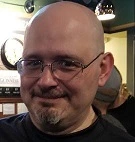If you like this post, please retweet it.
Binging Halt and Catch Fire inspired me to re-watch Captain Marvel because Lee Pace played one of the key figures in both works. Mr. Pace won’t be the subject of this story, but it triggered the viewing.
Prior to seeing Brie Larson in Captain Marvel, I wasn’t impressed with her acting. Apparently, that created a bias, because I didn’t think much of the job she did in Captain Marvel either. I enjoyed the movie anyway because the character’s personality, fueled by her amnesia and her role as a soldier, didn’t require much range. In fact, it dictated that she remained as flat and one-dimensional as I’ve experienced. However, it left me concerned that in future performances she’d be equally flat and one-dimensional when the role required her do better. Her performance in Endgame didn’t give me any more confidence, because her role was limited.
Then the Room came to Netflix, so I watched it. I was curious as to how she could win an Oscar considering everything I had seen. In the Room, she was a completely different Brie Larson. I saw much better acting, so it was clear that she had the chops for the role. On the second, and now third, viewing of Captain Marvel, I see her performance in a different light. The extra dimensions are there; it’s just more subtle. As with Nebula, the script limited Carol Danvers be acted in a certain way — brooding, cold, distant, guarded — but Ms. Larson somehow hinted at the range of normal emotions inside. At times, she’s happy, playful, sorrowful, nostalgic, inquisitive, remorseful, optimistic, and goofy; I simply missed it because of that bias. My short term memory didn’t retain things I didn’t think I’d see.
The more I watch this movie, the more I appreciate the subtleties typical of an MCU film and Ms. Larson’s performance. My guess is that both Captain Marvel 2 and she will be just as good.
But Goose stole the show. You’ll have to deal with that, Brie.
Follow me on Twitter @gsllc (please retweet!)
Follow Brie Larson @brielarson
Follow Lee Pace @leepace
